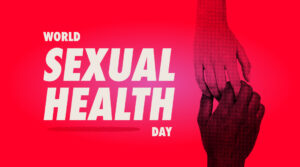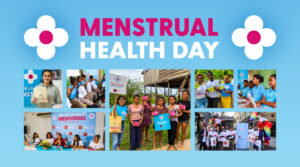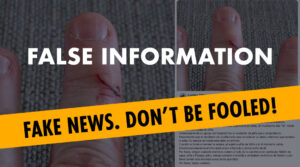Receiving a diagnosis of a sexually transmitted infection (STI) can have a significant emotional impact. Beyond the physical aspects, these health issues often bring a heavy psychological burden, and you may feel guilt, shame, or denial.
If you find yourself in this situation, remember that negative feelings are normal, but they don’t have to stay with you. Here, we address how you can handle it holistically to care for both your emotional and physical health, as recommended by the The Test Clinics website.
STIs Are a Reality
The first step to addressing an STI diagnosis is to acknowledge and accept reality. Denial may seem like a defense mechanism to avoid emotional impact, but moving forward requires acceptance. Once you acknowledge the situation, you’ll realize that, while it may be uncomfortable or painful, it is manageable and can improve.
It’s natural to feel fear, especially if you lack sufficient information about the STI you’ve been diagnosed with. The good news is that this fear subsides when you gain clear knowledge and tools to face it. Acceptance is a courageous act that allows you to take control of the situation and seek solutions.
Don’t dwell on past actions—feeling guilty won’t help. Instead, see this moment as an opportunity for growth. Changing habits and adopting preventive measures, like using condoms, will help you better protect your sexual health moving forward.
Seek Information and Solutions
Once you’ve accepted the diagnosis, the next step is to educate yourself. Learning about the STI, its treatment options, and how to prevent future infections is key to restoring your well-being and emotional peace. Education will help you understand how to handle the situation practically and make more informed decisions in the future.
But wait, seeking information doesn’t mean simply diving headfirst into the internet to search for symptoms, images, and treatments. Instead, reach out to real specialists (such as medical personnel or civil organizations like AHF Latin America and the Caribbean) who can discuss and address your concerns directly.
Seek Care and Treatment for STIs
An STI diagnosis requires proper medical care. Schedule a consultation, ask about treatment, and follow it exactly as prescribed. Many sexually transmitted infections are curable with relatively simple medications, while those that cannot be cured have effective treatments to keep them under control.
After resolving the immediate issue, remember to have regular check-ups and specific tests to monitor your health and ensure the treatment worked.
If the emotional impact has been very intense (for example, if you’ve had to undergo surgery or a painful procedure), it may be necessary to seek support from a therapist or a specialist in sexology. These professionals can help you better understand the situation and provide strategies for managing the emotional aspects of the diagnosis.
If you’ve received a HIV diagnosis, psychological support is particularly important to process the news. If you have deep fears or concerns, speaking with someone who knows the topic well (whether a doctor or another person living with HIV) will help you understand that it is now a completely manageable health condition.
The Most Important Thing: You’ll Be Okay
Overcoming the emotional impact of an STI doesn’t usually happen overnight. Each step you take towards self-care and seeking support makes you more resilient. What’s important in this situation is to accept, learn, and act responsibly.
Remember, AHF Latin America and the Caribbean offers free HIV testing and condoms at no cost to you. Locate our offices in your country or contact us via WhatsApp to learn about all our services.







